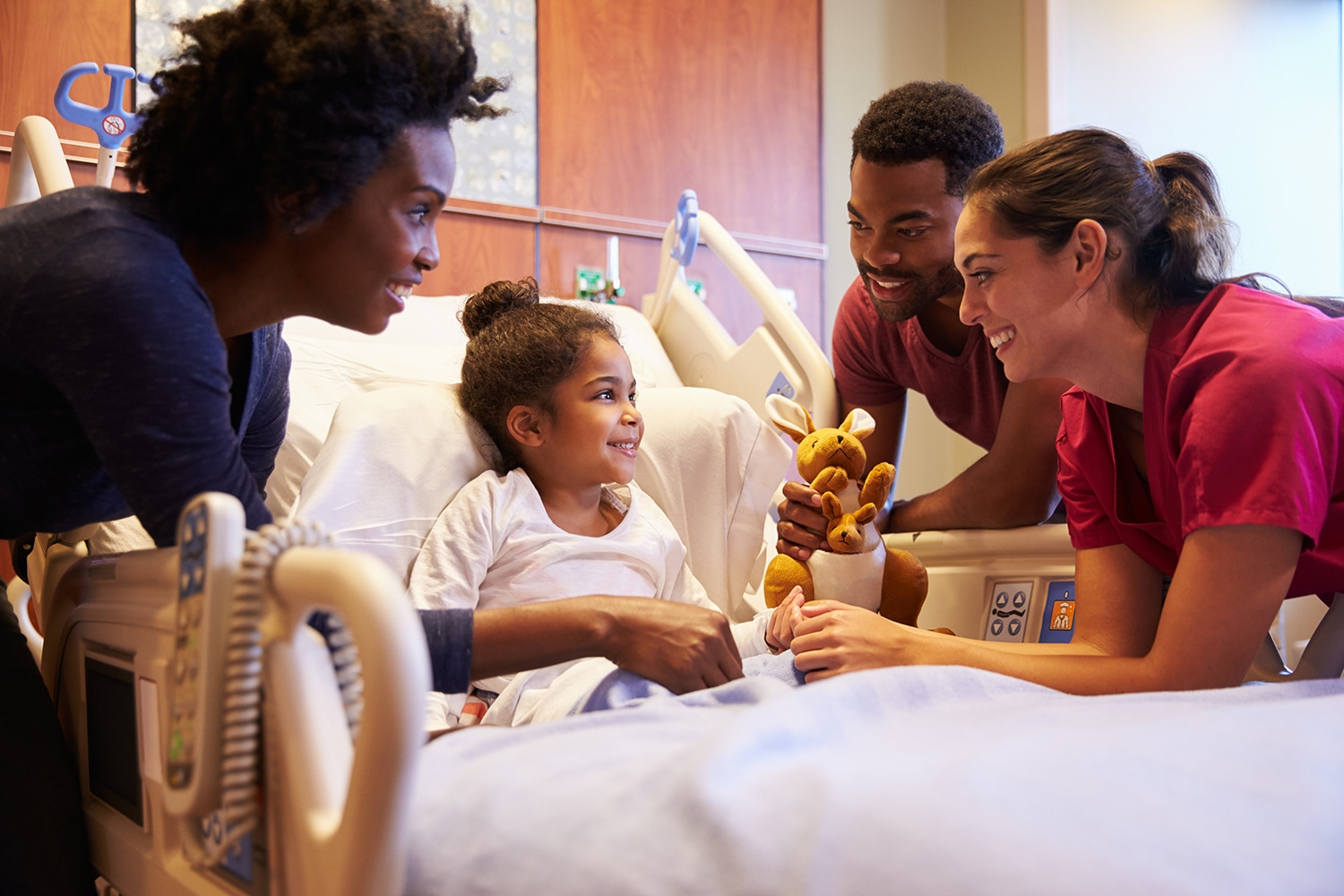Patient navigation programs to help adults who have been diagnosed with cancer were first introduced in 1990 and are now found at many cancer centers. To see if the benefits of these programs extend to pediatric cancer patients, the University of Alabama at Birmingham (UAB) and Children’s of Alabama in Birmingham recently launched a two-year pilot program that offers trained lay navigators for children being treated for cancer and their families.
The Family Care Connect Program, believed to be one of the first of its kind in the U.S., provides lay navigators for pediatric cancer patients and their families. The free program also offers support to children who experience chronic pain from sickle cell disease (an inherited blood disorder) and their families. The navigators assist children and their families by, for example, providing emotional support, coordinating medical appointments, arranging transportation, helping parents manage medical bills and connecting them with therapists and other support services.
“When a child is diagnosed, it’s not just the child. The whole family gets impacted,” says Avi Madan-Swain, a pediatric psychologist at Children’s of Alabama who helped implement the new program. For example, a parent may have to quit working to stay home with the child, reducing two incomes in a household to one. The navigators are trained to identify these difficulties quickly and “make sure there is a plan in place to help these families,” she says.
“The navigators to me are absolutely critical,” she adds, “because they are always the hub of contact. They are the one constant for the family during their cancer journey.”
The research team implementing the Family Care Connect Program has participants complete questionnaires at different points in the child’s treatment. This will allow them to assess, for example, whether the program improves children’s quality of life and reduces parents’ stress levels.
For now, the program is open only to families with children who have a solid tumor. Over time, it is expected to be made available to the families of children diagnosed with other types of cancer as well as any family whose child has sickle cell disease.
A study published in June 2017 in JAMA Oncology showed that UAB’s navigation program for geriatric cancer patients has reduced Medicare costs and emergency room visits. Madan-Swain will be looking to see if the program for pediatric patients and their families reduces emergency room visits and improves compliance with medical care. She also is collaborating with researchers at the UAB Collat School of Business to collect data on whether the program is financially sustainable.
“Paying for the services is an issue,” says Elizabeth Calhoun, a health services researcher at the University of Arizona Cancer Center in Tucson. Because of the relatively small number of children diagnosed with cancer, it’s been more difficult to get funding to launch navigation programs for them than it has been to create programs for adult cancer patients, Calhoun adds.
The new program could serve as a model for other cancer centers or hospitals. “There’s a lot of evidence that patient navigation programs certainly benefit [adult] patients,” says Calhoun. If the program for children and their families is found to be beneficial and sustainable, she says, “other people could benefit from it.”
Cancer Today magazine is free to cancer patients, survivors and caregivers who live in the U.S. Subscribe here to receive four issues per year.





